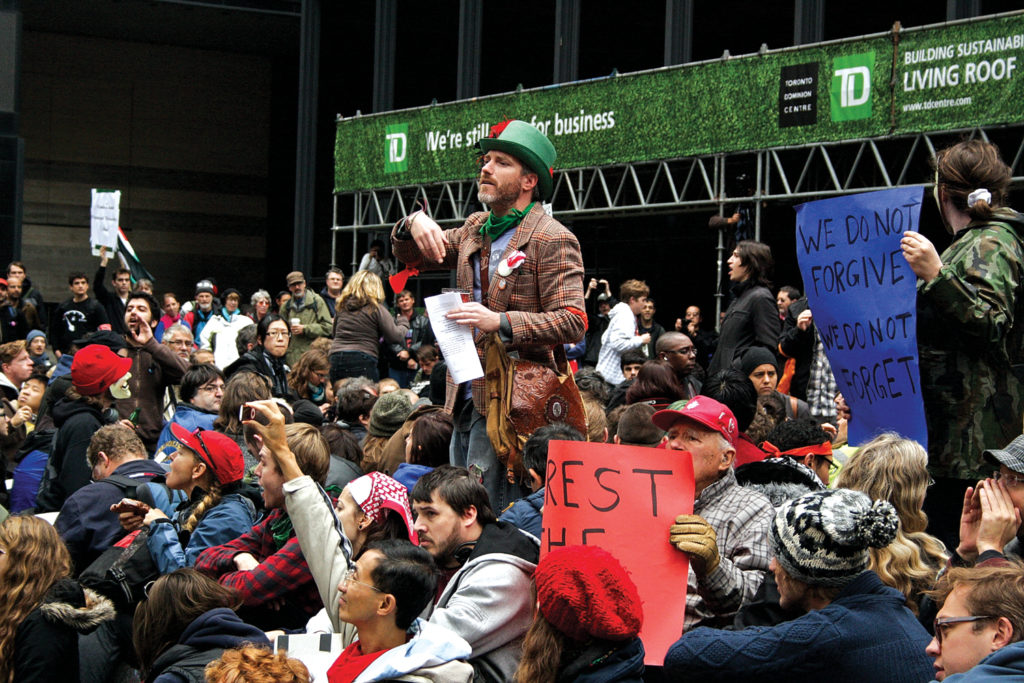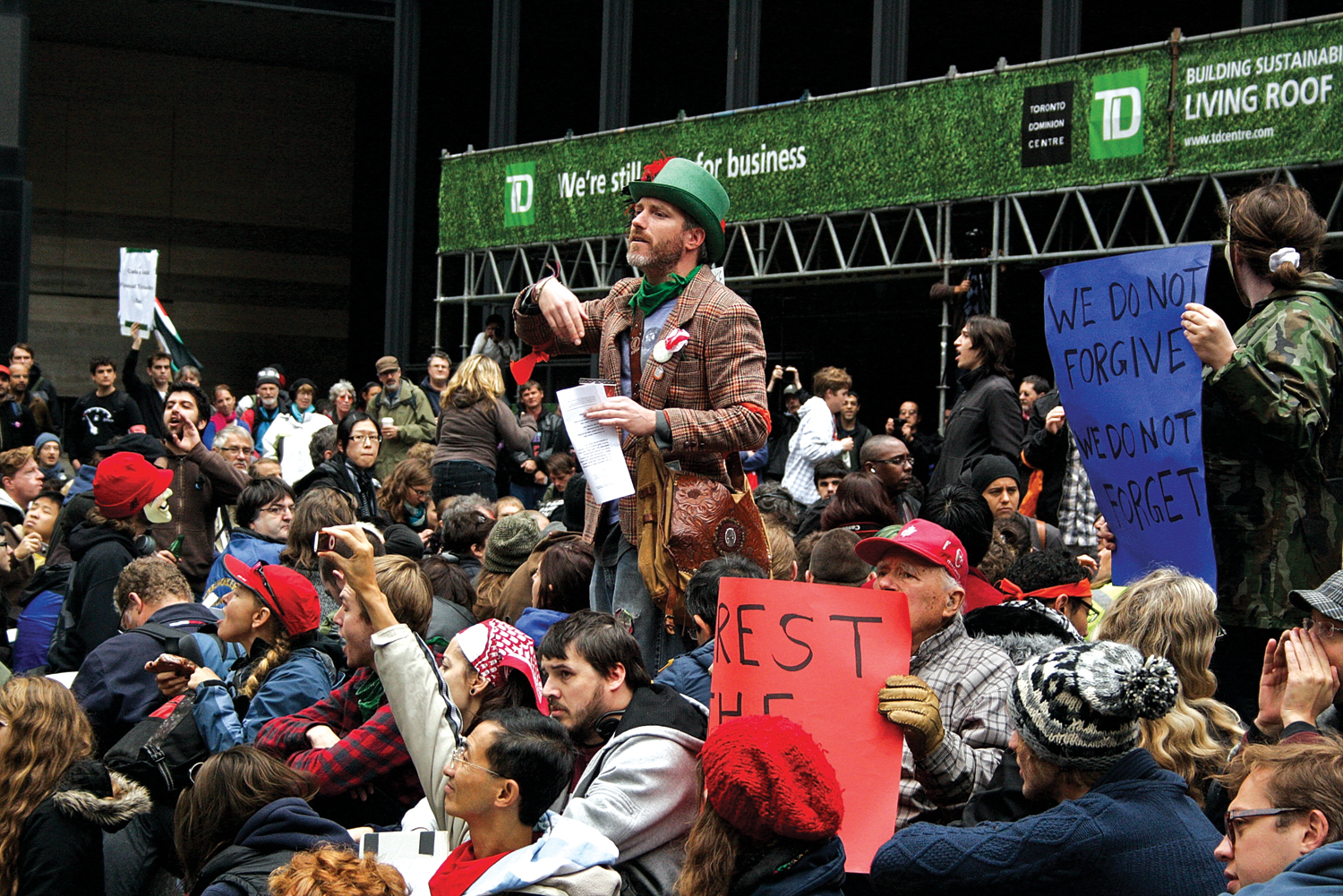Critical discussion of the Occupy movement expands to York’s campus
Jacqueline Perlin
Assistant News Editor

Occupy events have spanned the globe, and now they’ve made their way to York’s campus.
Scott Library invited students from the campus to participate in an Occupy Your Mind event, where students and faculty engaged in a discussions pertaining to the Occupy events.
The forum was hosted by York librarians Patti Ryan and Lisa Sloniowski. They felt it was important to expand the discussions on the Occupy movement to libraries, the traditional hubs of political debate.
“[The event] was about not just thinking of the library as a resource for books but one for public discussion,” explained David McNally, a professor of political science at York who participated in the event, leading and commenting on the discussion.
McNally added that libraries are a social and political organizing space. Last Tuesday’s event was an open-air forum on what the Occupy protests are about.
The 50-some individuals who attended had several questions and opinions regarding the Occupy protests, McNally explained.
“Some people thought the strength of the movement is that it hasn’t had one single demand,” he said.
The principle of the Occupy movement represents a change in how protests occur. “This has been the most sustained attempt of a new way of using public space,” McNally went on to say.
The impact has not been on the government but more on public opinion, he said.
McNally, pointed out that when a movement begins to connect with large sections of the general public, there’s a good chance that a momentum could be created that will eventually affect social and public policy.
“It’s a pressure that the government will feel obliged to address,” said McNally.
The movement does has its critics. Some say the Occupy movement fails to be representative of the real “ninety-nine per cent” of the population but McNally spoke to the contrary. The individuals at Occupy Toronto, unlike other cities, are notably diverse. The protests span several groups including the indigenous and the unemployed.
McNally believes the protest will continue into the new year. Occupy Toronto was recently equipped with winter-proof camping equipment, making it feasible that the protests will continue into the new year or until change is seen.
He also compared the movement to the civil rights and anti-war protests of the 1960s.
“This is a youth driven movement,” said McNally. Students’ key concerns are for their future stability in an era of high unemployment and service cuts.
McNally said most of the students who attended the event held favourable views towards the movement.
“[The event is] a democratic means to expressing views.”
If students at York want to get involved, McNally suggested attending one of the future discussions that will be held or visiting the Occupy Toronto website for more information on becoming part of the movement.


